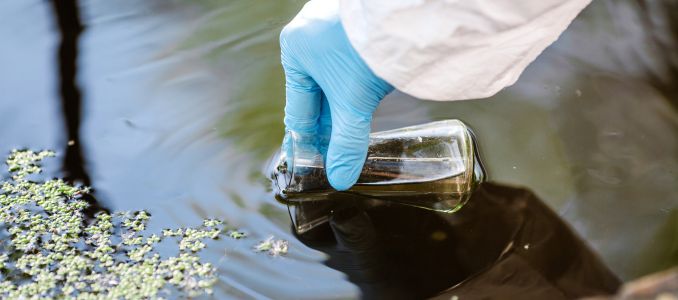
Massachusetts Invests $950K to Improve Water Quality and Combat PFAS Contamination
State grants will help five communities in the Ipswich River Basin upgrade water infrastructure and protect drinking water from harmful chemicals.
- By Stasia DeMarco
- Apr 29, 2025
The Healey-Driscoll Administration has awarded $950,000 in grants to five Massachusetts communities to improve public water supplies, increase water availability, and combat per- and polyfluoroalkyl substances (PFAS) contamination.
The funds, administered through the Massachusetts Department of Environmental Protection (MassDEP), are directed toward municipalities in the Ipswich River Basin and are part of a broader effort to enhance water infrastructure and protect public health.
“The Ipswich River Watershed serves as the drinking water source to more than 350,000 people in nearby communities,” said Energy and Environmental Affairs Secretary Rebecca Tepper. “The Healey-Driscoll Administration is committed to supporting our public water suppliers and protecting this resource.”
PFAS, often referred to as “forever chemicals,” are known for their persistence in the environment and potential to cause adverse health effects. State officials say the grant funding will help communities address these challenges with updated infrastructure and water treatment strategies.
“This funding will provide communities with the tools they need to design and construct infrastructure to preserve current water supplies, build interconnections to share neighboring supplies, and address PFAS contamination,” said MassDEP Commissioner Bonnie Heiple. “The Ipswich River Basin has unique drinking water challenges, and we are committed to supporting communities in addressing harmful PFAS in our drinking water.”
This marks the second year of the grant program, which aims to support long-term water supply planning while also safeguarding aquatic ecosystems in the Ipswich River Basin.
The 2025 grant recipients include:
- Hamilton and Wenham – $279,775
Funding will support modeling for a potential connection with the Salem Beverly Water Supply Board, treatment strategy pilots for removing PFAS from Wenham’s groundwater, and recommendations for Hamilton’s School Street well.
- Town of Wilmington – $154,208
The grant will fund the planning and design of a booster pump station to expand Wilmington’s connection capacity to the Massachusetts Water Resources Authority (MWRA).
- Town of Ipswich – $370,000
Funds will go toward preliminary design documents for a new water treatment plant with capacity to treat additional water sources and reduce dependence on the Ipswich River Basin. It also includes support for PFAS monitoring near proposed Lynch wells.
- Lynnfield Center Water District – $138,160
This project reimburses costs related to designing and contracting an interconnection with Wakefield’s system and assisting with MWRA membership requirements.
State lawmakers praised the initiative as a critical investment in water infrastructure and public health.
“Making sure that everyone in the Commonwealth has access to clean, safe drinking water is incredibly important,” said Sen. Brendan Crighton, D-Lynn. “This funding will support the critical efforts that the Lynnfield Center Water District has taken to ensure their residents can use water that is free from harmful PFAS.”
“The availability and quality of water are essential to our lives, and these grants fund tools to ensure that we have safe water supplies now and for the future,” added Senate Minority Leader Bruce Tarr, R-Gloucester.
Rep. Kristin Kassner, D-Hamilton, highlighted the broader environmental impact: “The Ipswich River is one of the most threatened in the country. These grants will be transformative toward regional water resiliency, water quality and treatment within the Ipswich River basin.”
For additional details on the 2025 grant projects, visit the Ipswich Water Supply and PFAS Grant page on the MassDEP website.
About the Author
Stasia DeMarco is the Content Editor for EPOnlne.